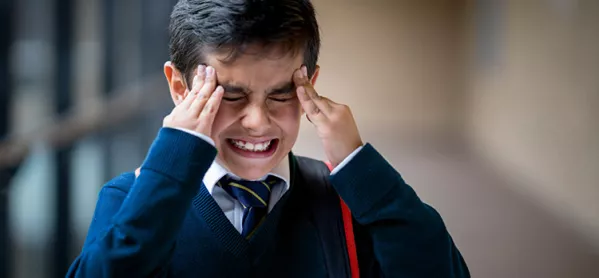A majority of state secondary teachers say bullying is a problem in their school, according to shocking findings of a Tes/This Morning survey
And more than half (53 per cent) of secondary teachers and 25 per cent of primary teachers said they know of children who had been too scared to attend school due to bullying.
But those responding said that one of the major difficulties in tackling the issue was a growing wider culture of seeing “banter” and mockery as entertainment.
Martin Davis, deputy head of Islwyn High School, near Blackwood, South Wales said: “Media attitudes to humour in most genres normalise banter, slapstick and mockery. Inevitably parents and children are influenced by this bombardment and many can no longer distinguish the media world from the real world.”
And another secondary teacher who preferred not to be named said: “It’s become so ‘normal’ for children to insult each other, post indecent photos of themselves and threaten violence because it’s all entered mainstream media. It is like fighting a losing battle.”
Digital technology has made the problem of bullying worse according to more than three quarters (76 per cent) of teachers. Having mobile phones has made children accessible to bullies at home and helped groups of pupils to gang up on an individual.
One primary deputy head in the south west had to deal with a group of 15 10- and 11-year-olds who had all been sending nasty texts to one child. “The child was very sensible and told her mother, but she had deleted the texts. That was her first reaction - she wanted them to go away, but it meant we didn’t have the evidence. We talked to the whole year group and we also sent a letter home saying it would not be tolerated. The bullying stopped.”
Teachers spoke about how tackling bullying required efforts on many fronts: empowering all children to feel able to report bullying whether it is happening to them or to others, encouraging parents to keep an eye on what their children are doing and demanding social media companies do more to protect young users.
A survey published by the children’s charity the NSPCC in April found that 81 per cent of the 1,696 secondary school pupils thought social media companies were not doing enough to protect them from bullying, pornography or self-harm.
But mental health expert Natasha Devon has warned against taking an over simplistic attitude towards children’s social media use - pointing out that online support groups can also provide a safe haven for children who are being bullied.
“Frequently, isolated LGBT+ teenagers can find communities of people who understand their orientation,” she wrote in a piece for Tes earlier this year. “Young people with experience of illness or disability can have access to others with similar stories. Bullied children can be reassured that they aren’t alone.”
The latest official statistics show that in 2015-16 there were 3,750 temporary and 40 permanent exclusions recorded as due to bullying. But there was also 59,880 temporary exclusions and 825 permanent exclusions which were due to a pupil physically assaulting another pupil.
One of the factors that needs to be tackled, according to those responding to the Tes/This Morning survey of more than a thousand teachers, is that only “extreme” acts are seen as bullying.
“The main problems are the subtle bullies who constantly chip away undetected at children causing long-term self-esteem issues to the children being bullied,” said one primary school teacher. “It seems like nothing but the build-up over a long period has a huge effect. It then becomes how the child is treated by the whole class.”
An NSPCC spokesperson said: “Bullying can happen anywhere - at school or online - and can have a devastating impact on a child.
“Bullying was in the top three reasons young people contacted Childline last year, yet we know children might not tell anyone they are being targeted because they’re scared of the consequences, or believe it’s their fault.
“At its worst, bullying has driven young people to self-harm and even suicide so it’s vital that parents and teachers know how to spot the signs of bullying and support those affected.”
Want to keep up with the latest education news and opinion? Follow Tes on Twitter and like Tes on Facebook




